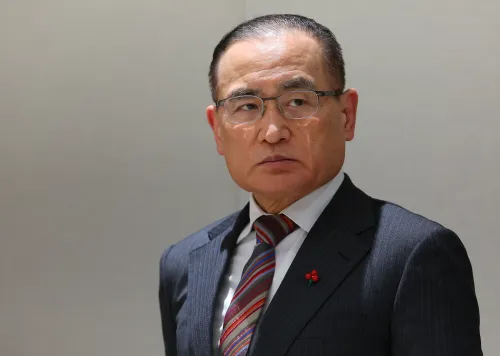Australia's Inflation Rate Increases to 2.3%

Canberra, Jan 8 (NationPress) The annual inflation rate in Australia has recorded a minor uptick in the year leading to November, according to new official statistics.
As per the data released on Wednesday by the Australian Bureau of Statistics, the consumer price index (CPI) — the primary gauge of inflation — increased by 2.3 per cent over the 12 months ending in November 2024.
This represents a slight rise from the 2.1 per cent CPI growth noted in the year ending in October 2024.
The Australian Bureau of Statistics pointed to expenditures on food and beverages, alcohol and tobacco, as well as recreation, as the principal factors driving inflation during the 12 months up to November.
Prices for food and non-alcoholic beverages surged by 2.9 per cent, while alcohol and tobacco prices climbed by 6.7 per cent, and recreation and culture expenses rose by 3.2 per cent in that timeframe.
These increases were somewhat balanced by a 21.5 per cent decrease in electricity prices and a 10.2 per cent drop in fuel prices for vehicles.
The core inflation rate, which omits the most erratic price fluctuations, fell from 3.5 per cent in October to 3.2 per cent in November.
The Reserve Bank of Australia (RBA) has set an inflation target range of 2-3 per cent, as reported by the Xinhua news agency.
In reaction to the statistics, Treasurer Jim Chalmers noted that the headline inflation has remained within the RBA's target band for four successive months.
In November, Prime Minister Anthony Albanese articulated that the most severe phase of the nation's inflation dilemma has passed.
Albanese conveyed that Australians have grounds for optimism as new data indicates inflation has reached its lowest level in the past three years.
Official statistics published by the Australian Bureau of Statistics in late October 2024 revealed that the CPI rose by 0.2 per cent in the third quarter of 2024, covering the period from early July to late September.
This was noted as the lowest quarterly CPI increase since the three-month period ending in June 2020.
"I am aware that workers, families, and small enterprises have faced difficulties, but while challenges remain, and there are still individuals under pressure who require our assistance, when we assess the economy today, we can identify new reasons for optimism and evidence that the worst is behind us," Albanese stated at an event on November 3.
"Together, we have weathered a global storm, and we have done so in the Australian manner," he added.
The CPI saw a 2.8 per cent rise in the 12-month period leading to September's end, marking the lowest annual figure at the quarter's conclusion since March 2021.
Australia's inflation rate peaked at a 32-year high of 7.8 per cent for the 12 months concluding in December 2022.










